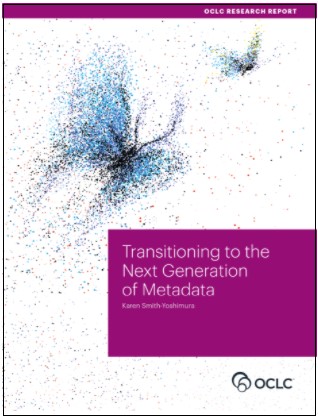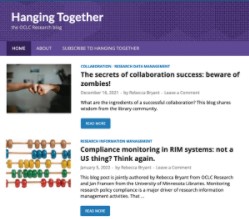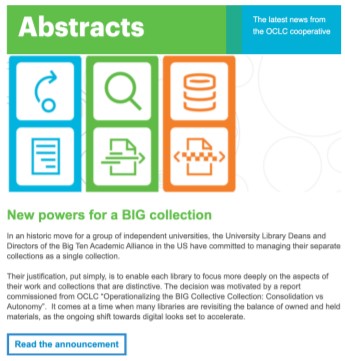OCLC Research has conducted over a decade of linked data research, publishing data to the web, testing workflows, and demonstrating the utility of metadata entities. In 2020, with financial support from the Andrew W. Mellon Foundation, that research culminated in a commitment to build a persistent, shared, and centralized entity management infrastructure for library linked data work.
OCLC Research staff supported the planning, architecture, data identification, extraction, and transformation that took place to make this service a reality. OCLC has also collaborated closely with the library community throughout this initiative in consultation with advisory group member institutions.
When completed, this infrastructure will include easily accessible authoritative descriptions of works and persons, enhanced and managed by OCLC and the library community. Connections to other external vocabularies will place library collections in a broader context across the web.
The infrastructure will fulfill the demand for persistent URIs in OCLC’s linked data and create a “point of need” service for ID creation. It will also link library data to non-library data and local data to shared data in ways that traditional cataloging has never supported. The system will operate at scale and complement other (transnational, national, regional, and institutional) library linked data initiatives such as the LD4P Grant, BIBFRAME implementations, IFLA LRM implementations such as the national Bibliographic Transition Program in France, and more.


 On this blog, we share more about our initiatives, what we're learning along the way, and the intersections we see between our areas of research.
On this blog, we share more about our initiatives, what we're learning along the way, and the intersections we see between our areas of research. If you want to stay updated on major announcements, featured events, research, product updates, member highlights and more, you can do so by subscribing to our newsletter, Abstracts.
If you want to stay updated on major announcements, featured events, research, product updates, member highlights and more, you can do so by subscribing to our newsletter, Abstracts.